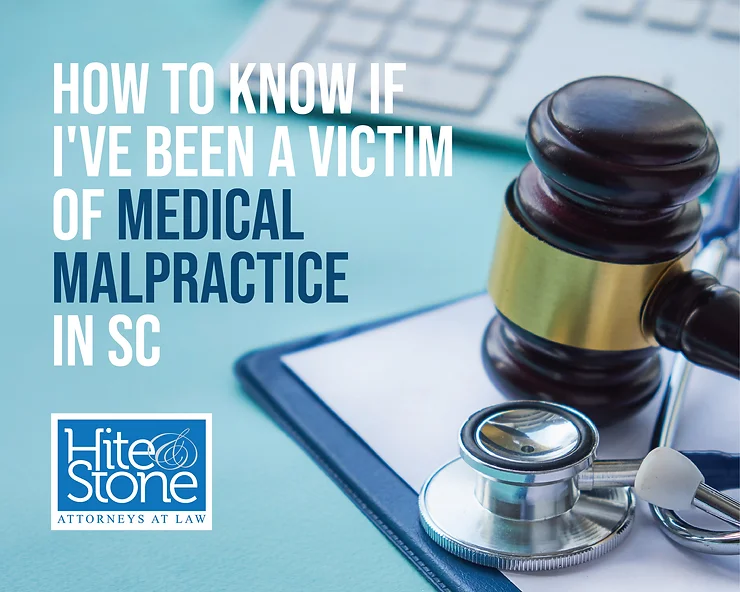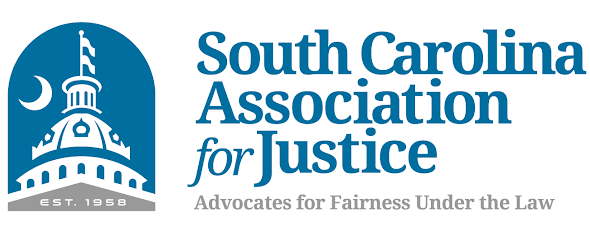Decades ago, New Yorker Willie King underwent surgery for the amputation of a diseased leg. He woke up from the operation and to his horror, his good leg had been amputated, but his diseased leg was still attached. It was clear to him from the moment he discovered his good leg was gone that he had been the victim of medical malpractice.
As a result of Mr. King’s misfortune, operating rooms across the country developed criteria designed to make sure that the same mistake would not happen again. However, there are still reports today of surgeons who have operated on the wrong body part – or even the wrong person.
Medical malpractice in South Carolina is not always as easy to recognize as it was for Mr. King. You may experience a feeling that things are just “not right.” You may have a lingering sickness, and your doctor cannot seem to find out what is wrong, just to discover later that you have an illness that should have been diagnosed weeks, months, or even years earlier and as a result; life-saving treatment was delayed.
Those who can be held liable for medical malpractice include anyone who has medically treated you or any facility where you received treatment: hospitals, doctors, nurses, physical therapists, pharmacists, and more. But the question remains – what do you do if you’ve been a victim of medical malpractice in SC? How can you get justice for your pain and suffering?
What You Need to Prove to Win Your Case
To determine if you are the victim of medical malpractice, there are several factors that must be proven.
- You must have a provider-patient relationship with the person or entity you believe committed malpractice. If you followed the casual advice you got from a doctor over a drink at a cocktail party, and that advice caused you harm, you were not the victim of medical malpractice. You must have an agreement with the healthcare practitioner to provide you with medical care.
- The healthcare practitioner was obviously negligent in the care provided to you. This means the care fell below the standard of care expected of other healthcare practitioners in the same field of practice, in the same community. This requires expert testimony by another healthcare practitioner that the practitioner in question was negligent and did provide care below the expected standard.
- The negligent care caused you harm. Some examples of harm are:
- Operating on the wrong body part.
- Leaving a foreign body inside you during the operation.
- Clipping or puncturing an organ.
- Improperly administered anesthesia during a surgical procedure.
- Wrong diagnosis or missed diagnosis so proper treatment is delayed, or painful but unnecessary treatment was administered.
- Lack of informed consent.
- Your newborn suffered birth injuries, such as brain damage due to oxygen deprivation, inadequate monitoring during labor, improper use of forceps, and other injuries.
These factors require a comprehensive review of your medical records by an expert who can discover the errors that occurred. Not all bad outcomes mean you were the victim of medical malpractice. Just because your broken bone didn’t heal correctly after being put in a cast, does not necessarily mean the doctor who treated you was negligent.
You Suffered Damages as a Result of the Harmful, Negligent Care.
You need to prove you suffered damages – whether they are physical or psychological. Some damages that may be a result of medical malpractice include, but are not limited to:
- All related medical expenses, both current and those for medical treatment you are expected to need in the future.
- Wages you lost due to your inability to work.
- Vocational rehabilitation if you are unable to return to your former job.
- Your pain and suffering.
- Any financial losses you experienced or expect to experience in the future because of the medical malpractice are damages you can expect to legally collect.
If you believe you or a loved one has been a victim of Medical Malpractice, please contact a lawyer at our law office of Hite Law Firm. We would love to learn more about your situation and see how we can help you receive the compensation to which you are legally entitled. We serve those all over the State of South Carolina.








